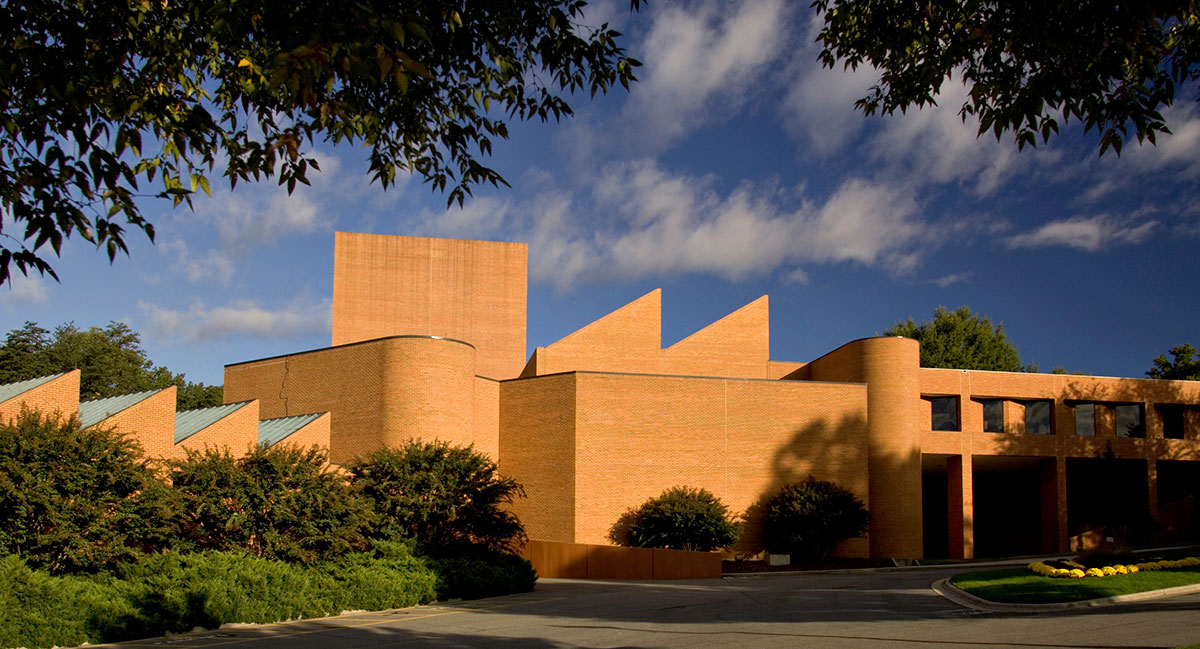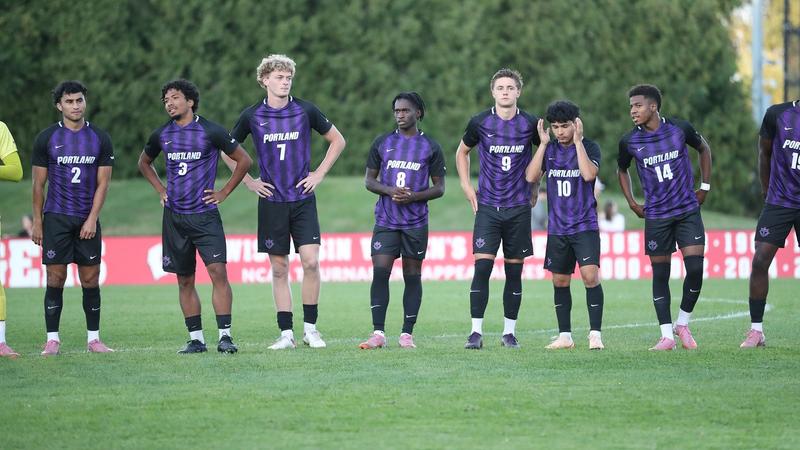Soccer
Gorillas to Open Spring Drills Thursday


PITTSBURG — The Pittsburg State University football team will open its 2025 Spring Drills Thursday (Mar. 27).Coaches Clinic Set For Friday, Apr. 11
The Pitt State football staff also will host its 2025 Coaches Clinic on Friday, Apr. 11, at the Bicknell Family Center for the Arts on the PSU campus. The clinic features some of the region’s top coaches speaking on a range of topics. Head coach Tom Anthony and his coaching staff welcome approximately 100 players into spring camp. The Gorillas posted an 8-3 record and qualified for the NCAA Division II national playoffs for a third straight season.Pitt State will conduct Thursday’s practice at 6 a.m. at Carnie Smith Stadium. Next week, the Gorillas will practice at 6 a.m. Tuesday (Apr. 1), Thursday (Apr. 3) and Friday (Apr. 4). Tuesday and Thursday practices will be at Carnie Smith Stadium, while Friday’s practice will be held in the Robert W. Plaster Center.
Head coach Tom Anthony and his coaching staff welcome approximately 100 players into spring camp. The Gorillas posted an 8-3 record and qualified for the NCAA Division II national playoffs for a third straight season.Pitt State will conduct Thursday’s practice at 6 a.m. at Carnie Smith Stadium. Next week, the Gorillas will practice at 6 a.m. Tuesday (Apr. 1), Thursday (Apr. 3) and Friday (Apr. 4). Tuesday and Thursday practices will be at Carnie Smith Stadium, while Friday’s practice will be held in the Robert W. Plaster Center.
Football
Pitt State will host its Spring Game on Friday, May 2, at Carnie Smith Stadium. The contest is open to the public.
College Sports
No. 7 Wake Forest Set to Host Lipscomb



WINSTON-SALEM, N.C. – Looking to continue its unbeaten start to the 2025 campaign, the No. 7-ranked Wake Forest men’s soccer team is set to host Lipscomb at Spry Stadium Friday evening.
The match against the Bisons is slated for 7 p.m. and will be streamed live on ACC Network Extra with live stats available here.
Fan Information
Parking is encouraged in lots A, B, Q, W1 & W2. A complete parking map of campus is here.
Gates open one hour prior to kickoff for all home matches.
Season Ticket Information
2025 Wake Forest soccer season and single game tickets are on-sale now giving fans the opportunity to witness The Best Fan Experience In North Carolina from a number of unique seating options!
Adult season tickets start as low as $70 for general admission and $50 for youth while reserved chairbacks are $130 for fans and $110 for Wake Forest University faculty and staff.
Accessibility Information
Wake Forest Athletics strives to provide content at games, social media and on GoDeacs.com that is accessible to all people. In the continued effort to improve accessibility of the technology and digital content at tomorrow’s game, fans can access closed captions here for the public address announcer and in-venue content.
Wake Forest Athletics is always open to learning about new ideas and ways we can improve. Please report accessibility challenges, identify content you find inaccessible, or give us general feedback at pantagw@wfu.edu.
Quick Notes
- Wake Forest has only allowed one goal this campaign, which is tied for the fewest goals allowed through three games in the Muuss-era.
- Goalkeeper Jonah Mednard has conceded just once in his career with 287 total minutes in goal with two clean sheets. He holds a .889 save percentage and a .32 goals-against average.
- Wake Forest will look to start unbeaten through four matches for the sixth time under Muuss and for the first time since 2023.
- This will be the first-ever meeting between the two programs.
- The Demon Deacons enter the contest unbeaten in their last 15 matches at Spry Stadium with wins in seven of the last eight.
- The Deacs hold a 11-0-4 home record dating back to Aug. 25 of last year.
- Additionally, the Demon Deacons have yet to trail this season as they have led for 93 minutes.
- All four of the Deacs’ goals to open the season have come from four different players as Ryan Belal, Jeffrey White, Jose Perez and Tate Lorentz have all opened their accounts on the year.
- Earlier this week, the Demon Deacons landed No. 7 in the United Soccer Coaches’ preseason poll while also holding No. 6 spot in the TopDrawerSoccer College Soccer News polls.
- Wake Forest was picked to finish second in the ACC preseason poll and held the most first-place votes (5).
Scouting the Bisons
- Lipscomb is coming off of its first win of the campaign as it took down Mercer, 2-0, at home on Sunday and currently holds a 1-1-1 record headed into Sunday.
- Redshirt junior midfielder Levi Jones came off the bench and scored in the 68th and 75th minutes to defeat the Bears.
- Jones leads the team with five points as he also notched an assist on the 77th-minute equalizer against Memphis in the opener.
- The Bisons only bring back 18 percent (4-of-22) of their goal production from last season that saw Lipscomb post a 3-8-5 (1-4-2 ASUN) record.
- Only one returning player, Tyler Stinnett, scored multiple goals last season (two).
- The squad is made up of 13 newcomers to the squad with eight freshmen.
- The Bisons were picked to finish fifth in the ASUN Preseason Coaches Poll and received one first place vote.
- One of the newcomers is starting goalkeeper Alex Kara, who transferred in after two seasons with Indiana.
- He made six saves against Memphis and five against USF before earning his first-career clean sheet last time out against Mercer.
Last Time Out (vs. St. John’s)
- The No. 5 Wake Forest men’s soccer team remained unbeaten in 2025 as it battled St. John’s to a 0-0 draw Sunday evening at Spry Stadium.
- Wake Forest came out dominating play throughout the opening stages of the match and held possession for 65 percent of the first half. However, the two sides went into the halftime break knotted at 0-0 without either team able to score by the final whistle.
- In the 75th minute, it looked as if the Demon Deacons had taken a 1-0 lead off a Jeffrey White goal following a set piece just outside of the 18, but the decision was overruled by VAR.
- In goal, redshirt sophomore goalkeeper Jonah Mednard recorded his second-consecutive clean sheet. Despite only tallying one save, he snuffed out multiple potential chances for the visitors and limited the danger.
- For the third-consecutive match, Wake Forest went with a starting backline of junior Travis Smith, Jr., sophomores Mason Sullivan and Amoni Thomas, and graduate captain Cristian Escribano. The Demon Deacon defense excelled in limiting opportunities for the visitors and only allowed one shot on goal over the 90 minutes.
- This marked the second-straight contest in which the Deacs allowed just one shot on frame as Wake Forest has outshot opponents 42-to-30 through the first three matches of the season.
- Additionally, this marks the first time since Oct. 1-12 (four matches) of last year that the Demon Deacons recorded consecutive clean sheets.
- With the draw, the Demon Deacons are now unbeaten in their last 15 matches at Spry Stadium. Overall, the Deacs hold a 11-0-4 home record dating back to Aug. 25 of last year.
Battle Tested
- The Demon Deacons face one of the toughest schedules in the nation this season due to the strength of the ACC.
- Wake Forest has six opponents on the schedule that are currently ranked inside the top 20, including No. 1 Stanford, No. 3 Clemson and No. 10 Pitt.
- Of note, the ACC holds six spots in the top 10 of the United Soccer Coaches poll and seven in the top 15.
National Leader In Wins
- Named the fourth head coach in program history prior to the start of the 2015 season, Bobby Muuss‘ Demon Deacon squads have built on the longstanding and rich 45-year history of the program.
- Since 2015, Wake Forest’s 154 total wins ranks No. 1 nationally, seven more than any program and 11 more than any other ACC program. During that span, Wake Forest is also joined only by Indiana as the only Division I programs to have won at least 10 matches every season.
- Additionally, Wake Forest and Indiana are the only two programs of the 211 programs nationally to hold double-digit NCAA Tournament appearance streaks.
- Wake Forest also leads the nation in wins over the last quarter-century (359), 10 more than second-most Maryland.
Total Wins Since 2015
| Rank | Team | Total Wins Since ’15 |
| 1. | Wake Forest | 154 |
| 2. | Indiana | 148 |
| 3. | Clemson | 143 |
| 4. | Georgetown | 134 |
| 5. | Stanford | 130 |
Consecutive Seasons With 10+ Victories
| Rank | Team | Consecutive seasons with 10+ wins |
| 1. | Wake Forest | 13 |
| 2. | Indiana | 11 |
| 3. | Georgetown | 8 |
| T4. | Clemson, Missouri State, Marshall | 6 |
| 7. | Denver, Duke | 4 |
The Spry Advantage
- Since Muuss’ arrival in 2015, Wake Forest ranks No. 1 nationally in home wins (113), 17 more than any other program nationally.
- Over the last 10 seasons, the Deacs have won at least eight of their matches at Spry Stadium including a double-digit win total seven of those seasons.
- Wake Forest’s home winning percentage of 82.41 percent since 2015 also ranks third nationally, behind only Indiana and Denver.
Home Wins Since 2015
| Rank | Team | Total Home Wins Since ’15 |
| 1. | Wake Forest | 113 |
| T2. | Clemson | 96 |
| T2. | Indiana | 96 |
| 4. | Virginia | 89 |
| 5. | Georgetown | 85 |
Home Winning Percentage Since 2015
| Rank | Team | Home Winning Percentage Since ’15 |
| 1. | Indiana | 84.00% |
| 2. | Denver | 82.99% |
| 3. | Wake Forest | 82.41% |
| 4. | Clemson | 79.92% |
| 5. | Missouri State | 79.89% |
Consistent Threat In The Toughest Conference In The Country
- Recognized annually as the toughest soccer conference in the country from top to bottom, the ACC has placed the most teams in the NCAA Tournament each of the last 12 seasons and has had at least five teams earn a bid 24-straight seasons.
- During the 2024 NCAA Tournament, the ACC earned nine bids including seven national seeds.
- Wake Forest has received an NCAA Tournament bid 14-straight seasons, eight years more than any other ACC program.
| Rank | Team | Consecutive NCAA Tournament Appearances |
| 1. | Wake Forest | 14 |
| T2. | Clemson & Pitt | 6 |
| 4. | North Carolina | 5 |
| 5. | Duke | 4 |
| T6. | Virginia, Stanford & SMU | 3 |
Looking Ahead
- After Friday night’s match, Wake Forest will return to Spry Stadium for the last of its five-match home stand to open the season as it takes on Campbell on Tuesday night.
- The Demon Deacons will open conference play on the road at North Carolina on Friday, Sept. 12.
- The match against the Camels is slated for 6 p.m. and will stream live on ACCNX.
- This will mark the fifth-ever meeting between the two programs with the Demon Deacons leading the series, 4-0-0.
College Sports
No. 24 Pilots Welcome No. 17 Roos to Merlo Field for Ranked Matchup



PORTLAND, Ore. – Portland Pilots Men’s Soccer, ranked 24th in the nation, is ready for their first ranked matchup of the season against the Kansas City Roos. The two teams are set to play on Friday, Sept. 5 at 7 p.m. here at Merlo Field.
Tickets for Friday’s game are available at PortlandPilots.com/Tickets. A live stream is also available on ESPN+. Check PortlandPilots.com for links to the live stream and live stats.
MATCH INFORMATION
Opponent: #17/19/RV Kansas City Roos (2-0-2, 0-0-0 Summit)
Day: Friday
Date: Sept. 5, 2025
Time: 7 PM
Place: Portland, Ore.
Pitch: Merlo Field
Video: ESPN+
Stats: PortlandPilots.com
POR vs. UMKC
Overall Series: 0-0-0
H: 0-0-0 • A: 0-0-0 • N: 0-0-0
Last: N/A
PEEK INTO THE PORT
- The Pilots are a perfect 4-0 on the year, outscoring opponents 17-0 in these first four games. They are now ranked 24th nationally.
- They most recently earned a road win over the Wisconsin Badgers 1-0, their eighth win over a Big Ten team and 18th against a Power Four team since Nick Carlin-Voigt took over as head coach in 2016. They also beat the Siena Saints last week 4-0.
- David Ajagbe scored the game-winning goal for the Pilots against the Badgers. Highfield scored two goals against the Saints and Waggoner added another.
- The Pilots lead the nation in 10 different categories, including goals (17), assists (21), points (55), goals-against average (.000), shutout percentage (1.000), save percentage (1.000), points per game (13.75), goal differential (17) and assists per game (5.25)
- Several players are near the top of the nation statistically.
- Diego Rosas is tied with 10 players for first in the nation in assists at four. He posted two assists against Siena on Friday.
- David Ajagbe and Nicholas Dunbar also sit at second in the conference and 13th nationally in assists at three. Ajagbe’s seven points rank second in the WCC and 18th nationally.
- Joe Highfield is one of the top scorers in the nation, sitting at third in points (11), fifth in goals (four) and 11th in assists (three).
- Miguel-Angel Hernandez has yet to allow a goal in his three starts for Portland. He’s one of 14 players to not allow a goal.
- Portland is one of five teams to have started the season 4-0-0 and are the only team in the nation to have started 4-0-0 with four straight shutouts.
- Portland’s 4-0 start is the first time since 1988. It’s also the first time they’ve posted four straight shutouts to start a season since that year.
- The Pilots hold a 14-game unbeaten streak that stretches back to last season.
- This year, they were picked to finish third in the 2025 West Coast Conference Preseason Poll, with forward Joe Highfield and midfielder Efetobo Aror each making the preseason team.
- Highfield was the first Pilot to make the All-WCC First Team and the All-WCC Freshman Team in the same season since Benji Michel in 2016, scoring seven goals and adding three assists. His four goals and three assists against WCC opponents were the second most in the conference.
- Aror was drafted in the first round of the 2025 MLS SuperDraft this past year by the Colorado Rapids but chose to return. The WCC Freshman of the Year in 2023, he played in 10 matches with six starts, recording a goal and assist.
- Aror, along with Pilot newcomer David Ajagbe, was also named to the TopDrawerSoccer Top 100 players in the preseason, slotting in at 52nd. Ajagbe ranks 99th on the list.
- Ajagbe scored seven goals and added two assists with the Ohio State Buckeyes last season, who earned the top overall seed in the NCAA Tournament last year. Ajagbe made the All-Big Ten Freshman team and the TopDrawerSoccer Freshman Best XI Second Team.
- Last season, the Pilots were a dynamic offensive team, ranking second in the WCC in goals per game (1.78), total assists (44), total points (108), points per game (6.00) and assists per game (2.44). Their 2.44 assists per game ranked ninth nationally while their assist total ranked 14th.
- The Pilots also were in the top 50 nationally in points per game, (21st), total points (27th), goals per game (44th) and total goals (32, 46th).
- The Pilots return 16 players from last year’s roster while welcoming 16 newcomers. The incoming class ranks fifth nationally on TopDrawerSoccer.
- Of the 16 returners, Portland returns three players who earned All-WCC honors: Highfield, Miguel-Angel Hernandez (Second Team) and Diego Rosas (Honorable Mention).
- Hernandez played in seven matches last year, posting shutouts in three of those matches.
- Rosas led the Pilots in assists in his second season with the Pilots, posting eight assists. He was the third Pilot since 2017 to post at least three assists in a game, doing so against the LMU Lions.
- Nick Carlin-Voigt enters his 10th year as head coach of the Pilots. He has posted a 92-46-21 record during his tenure, having led Portland to the NCAA Tournament five times during that span.
- Carlin-Voigt was at the helm when the Pilots advanced to the Elite Eight in 2022, their first appearance that deep in the tournament since 1995.
ABOUT THE ROOS
- The Kansas City Roos are 2-0-2 on the year, most recently tying the Saint Mary’s Gaels 1-1 and beating the Northern Illinois Huskies 2-1.
- They are currently receiving votes in the latest Top 25 poll from United Soccer Coaches. They are 17th in the College Soccer News Poll and 19th in TopDrawerSoccer’s poll.
- The Roos were 14-5-3 overall and 5-2-1 in Summit league play. They won the Summit League Championship over the Denver Pioneers and then advanced to the Elite Eight of the NCAA Tournament.
- The Roos were picked second in the Summit League Preseason Poll, with Bryson Gosch and Jeremy Francou making the preseason team.
- Gosch tallied 1,776 minutes last year, earning honorable mention as well as All-Tournament honors. He scored the equalizing goal in the Summit League Championship against Denver.
- Francou scored four goals last year for Kansas City, including a goal in their first-round tournament game against the Saint Louis Bilikens.
- Ryan Pore is in his sixth year at the helm of the Roos. He is 35-33-22 in his six seasons with Kansas City.
Get Your Tickets Now!
Secure your spot now for any upcoming Portland Pilots ticketed home event by visiting PortlandPilots.com/Tickets or by downloading the Portland Pilots App. For group and fan experience package information, email pilotsboxoffice@up.edu.
Donate Today
Fans interested in making a contribution to University of Portland Athletics can do so by clicking here. Your gift helps our over 300 student-athletes compete at the highest level – on and off the field – in the rapidly changing world of intercollegiate athletics. All gifts to Pilot Athletics are 100% tax deductible.
Follow Along With the Action
Get the latest news and information about your favorite University of Portland athletic programs by visiting PortlandPilots.com. You can also follow along for the most dynamic coverage and team-centric content by following us on Twitter, liking us on Facebook, and following us on Instagram.
College Sports
Men's Soccer Set to Face Boston University on Friday Night



PROVIDENCE, R.I. – The Brown men’s soccer team will head to Boston, Mass. to take on Boston University on Friday night. The game will take place at Nickerson Field, with kickoff scheduled for 7 p.m.
The contest will be broadcast live on ESPN+.
Scouting the Bears (2-0-0)
- Brown returns 17 players, including First Team All-Ivy honoree Lorenzo Amaral. In the offseason, 10 newcomers were added to the squad.
- The Bears opened up their 2025 campaign on Friday, Aug. 29 with a 2-1 home-opening win over Holy Cross.
- Jamin Gogo Peters scored the game winning goal in the 86th minute, giving Brown their first win of the year.
- They extended their winning streak with a 1-0 win at Fairfield on Monday night.
- 2024 Second Team All-Ivy honoree, Mads Stistrup Petersen has earned four points over the course of Brown’s first two games.
- Stistrup Petersen scored the first goal of the 2025 season in just the fourth minute of Brown’s first game.
- His second goal of the season came in the 58th minute at Fairfield. This gave the Bears just enough space to secure their second consecutive win.
- Goalkeeper Henrik Weiper has made three saves over his 180 minutes played so far this season. Weiper holds a .750 save percentage, currently placing him fifth in the Ivy League.
- The Bears are currently averaging a higher shot and shot on goal percentage than their opponents with .158 and .421 respectively.
- Brown is averaging 1.50 goals per game compared to their opponents’ .50.
- The Bears enter Friday night’s matchup with a 2-0 clean sheet.
Scouting the Terriers (2-1-0)
- Boston University repeated last season as the 2024 Patriot League Regular Season Champions.
- The Terriers return Patriot League Defensive Player of the Year Quin DeLaMater, along with Midfielder of the Year Diego Rived. Andrea Di Blasio earned First Team All-Patriot League, with John Roman earning Second Team.
- Boston University began their 2025 season with a 1-0 win at the University of New Hampshire.
- Austin Mobray scored the Terriers’ lone goal in the 48th minute, giving BU the edge over the Wildcats.
- BU dropped their second contest of the season three days later to No. 1 Vermont. The Catamounts shut the Terriers out 4-0.
- The Terriers bounced back on Friday, Aug. 29 when they defeated the College of Charleston 5-1.
- Ethan Gill netted the first goal for BU in the fourth minute of play, getting the Terriers started for the night.
- Sebastian Otero scored the second goal, giving the Terriers a 2-0 edge over Charleston.
- BU scored three goals in a 12 minute span, capping off their 5-1 victory.
- BU enters Friday’s contest with a 2-1-0 record.
History
- The Bears hold a 26-15-5 record over the Terriers dating back to 1969, with a 9-1-3 record in their last 13 meetings.
- The two teams most recently met in 2024, with Brown taking BU down 5-1.
- Brown went on a six game winning streak from 2010-2015.
- The Terriers last beat the Bears in 2016, with a final score of 2-0.
BROWN UNIVERSITY SPORTS FOUNDATION
The Brown University Sports Foundation (BUSF) is the lifeblood of the athletics program, and exists to enhance the student-athlete experience through philanthropic support from alumni, parents, fans and friends. A gift through the Sports Foundation makes an immediate impact on today’s Brown Bears and helps them to be their best in the classroom, in competition and most importantly in the community. To learn more about supporting the Bears, please click here
FOLLOW US ON SOCIAL
For the latest on Brown Athletics, please follow @BrownU_Bears on Twitter, @BrownU_Bears on Instagram, like BrownUBears on Facebook and subscribe to the BrownAthletics YouTube channel.
College Sports
Women's Soccer Shuts Out San Francisco in First Ever Meeting



SAN FRANCISCO – Dartmouth women’s soccer collected its first win against San Francisco in program history on Thursday evening, shutting out the Dons 3-0.
With the victory, Dartmouth brings its season record to 3-0-1 while the Dons fall to 1-4-1. The Big Green are tied with Penn for first in the Ivy League standings.
Dartmouth outshot the Dons 10-9, having nine shots on goal while San Francisco was held to two through 90 minutes of play.
Ellie Davidson and Stephanie Lathrop connected with Maeve Theobald for her fourth goal of the season, putting Dartmouth on the board in the 12th minute. Theobald continues to lead the league in goals.
Less than two minutes later, Hailey Rorick found Lathrop, who launched the ball into the net to bring the game to 2-0.
San Francisco applied pressure entering the second half, making seven shots. The Big Green continued their momentum, securing a 3-0 victory when Emmanuella Frimpomaa and Michal Cagungun connected with Lourdes Lauterborn for a goal in the 83rd minute.
Paige Knoth collected her third clean sheet through four starts. The first-year goalkeeper made two saves against the Dons.
The Big Green wrap their West Coast trip on Sunday at 4 p.m. EST when they face Santa Clara at Stevens Stadium.
College Sports
Wheeling Men's Soccer Battles Before Falling in Season Opening Match with CAL



Next Game:
at West Liberty University
9/7/2025 | 3:30 PM
Sep. 07 (Sun) / 3:30 PM

at West Liberty University
History
Wheeling, W. Va. – The 2025 Wheeling University Men’s Soccer team (0-1, 0-0) opened their 2025 season in front of their home crowd at Bishop Schmitt Field on Thursday night. The Cardinals and Vulcans battled throughout the night, but in the end it was CAL-U that would end with the upper hand, beating Wheeling 3-0. Both teams had plenty of opportunities throughout the night, with Wheeling winning the shot game 12-11, but the Cardinals could not find the back of the net in the effort.
As the Cardinals took the field, it was clear that they were going with an aggressive style of play early on. The Cardinals would control the time of possession and nearly snuck the ball by the Vulcan defense in the eighth minute. Otto Amesty made a run down the sideline and sent a shot to the top of the net, but CAL-U’s AJ Visco came up with the save to keep the game scoreless. The Cardinals would get a corner kick opportunity just 10 seconds later, and Timbrell sent the ball towards the net, but was denied by Visco once again in the ninth minute. CAL-U’s first shot of the day came in the 12th minute, but was off the net thanks to the work of the Cardinal’s back line. Pablo Prieto, Joergen Bjerkreim, and Aiden Morales allowed just one shot on net over the first 45-minutes of play, and just four total shots during the half, creating opportunities for their offensive attack.
Wheeling had a big scoring chance in the game’s 27th minute, when Jon-Michael Gordon worked his way around the Vulcan defense and had a nearly one-on-one opportunity with the goalkeeper. However, Visco would win the battle, saving Gordon’s shot and keeping it a 0-0 game. Wheeling was able to hold the Vulcans off the board until the 43rd minute, when they set up a corner kick opportunity. Jacob Gretz would send the ball towards the net, and Eduardo Miranda would find the bottom right corner of the net. It gave CAL-U a 1-0 advantage on the scoreboard, which they would hold heading into the halftime. Wheeling would set up one final corner kick in the 44th minute, and Prieto would send a shot that ended up going wide as the Cardinals headed for the locker room.
Wheeling would outshoot CAL-U 5-4 in the first half and looked to continue that aggressive style of play as the teams emerged for the second half. It would be a half of corner kicks for the Cardinals, with 11 of their 14 in the game coming over the final 45 minutes of play. The first of those kicks came in the 48th minute and Josh Timbrell tried to capitalize but was once again denied by Visco. Andoni Pipaon would add another shot on a corner kick attempt in the 51st minute before CAL-U got back on the board. In the 56th minute, Ben Sauerlander would get the Vulcans on the board on a corner kick from Jaime Marcelo Espinosa. With the Cardinals now trailing by two, they would get several corner kick opportunities in the next 10 minutes as they tried to end their shutout.
The first of four corner kick opportunities came in the 67th minute as the Cardinals attacked the Vulcan net. Wheeling would get two shot attempts off those four corner kicks, with Prieto and Ruesca Martinez each getting shots off during the attempts. However, it would be CAL-U that got on the board one final time in the 73rd minute as Brady Olsen found the net to make it a 3-0 game. The Cardinals would set up for their final corner kick of the night in the 84th minute and it was the closest they came to capitalizing. The ball found the head of Gordon, who sent the shot on net and was denied one last time by Visco to round out the day. Luka Martinaj would take one more shot in the game’s final 30 seconds, but it went wide as the Cardinals fell 3-0.
Leading the way for the Cardinals was Jon-Michael Gordon, who finished with three shots, putting two of those on goals. Gordon missed the entire 2024 season due to injury and is looking to return to his 2023 form that saw him make the MEC’s All-Freshman team. Josh Timbrell would add two shots of his own, putting two on net, while Pablo Prieto took two shots to round out the day. Daniel Delo got the start in net for the Cardinals, making four saves on seven shots faced to round out the day.
The Wheeling University Men’s Soccer team returns to action on Sunday, September 7th, when they take on West Liberty with kick-off at 3:30 PM.
College Sports
Panthers Drop Meeting with Spartans



GREENSBORO, N.C. – The High Point University women’s soccer team fell to UNC Greensboro, 1-0, on Thursday night.
Site: UNCG Soccer Stadium
Score: High Point 0, UNCG 1
Records: High Point (0-4-2), UNCG (1-5-0)
The Spartans jumped out in front early with a goal in the fifth minute by Bailey Gourdine. UNCG was able to control the game for the first 45 minutes before the whistle blew at the halfway mark of the match.
The Panthers came out hot in the second half as they had a few chances to net the equalizer. Sabba Haghgoo had the best chance of the night in the 51st minute after firing a shot that saw the Spartans keeper dive to her left and knock the ball down.
A few late pushes by HPU were halted by UNCG before the final whistle blew and the Spartans took the 1-0 victory on Thursday night.
Up Next: High Point will host UNC Wilmington on Sunday, September 7 at 1:00 p.m.
#GoHPU











































































